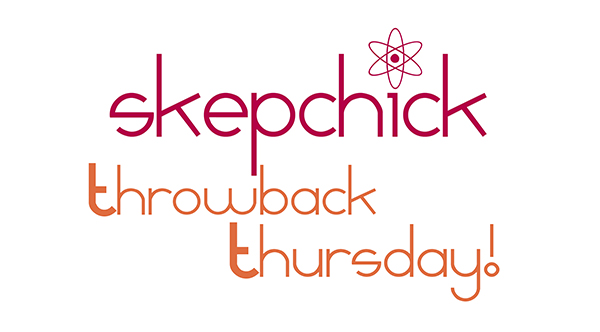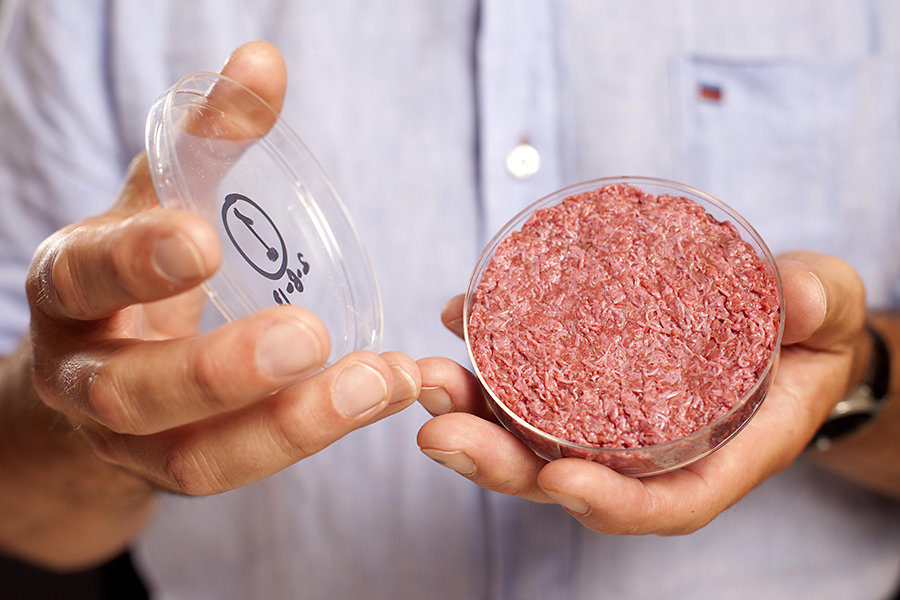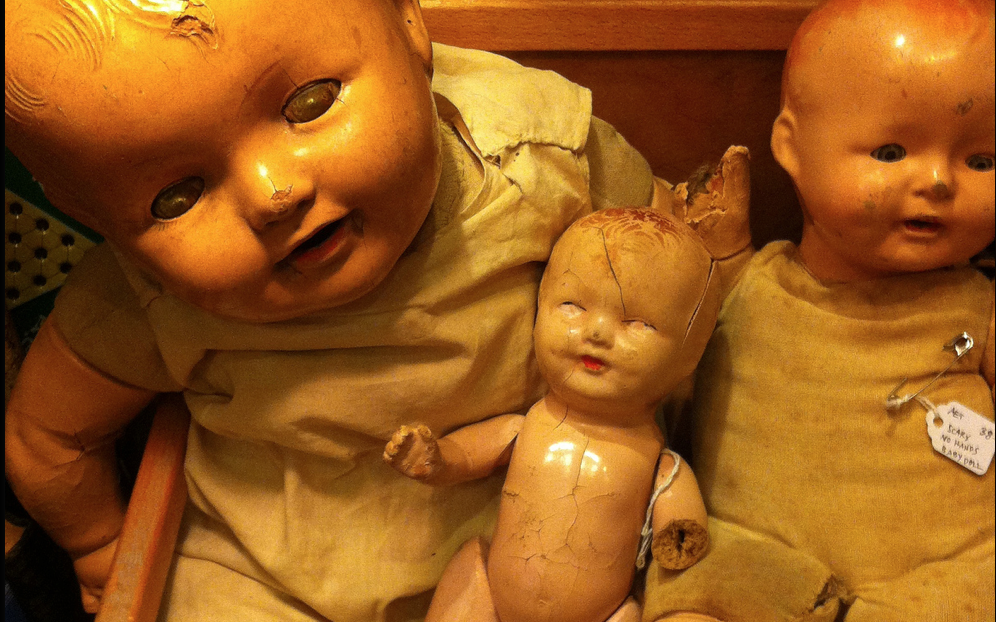AI: The gutsy gut

Never ignore a gut feeling, but never believe that it’s enough. — Robert Heller
One of our security face-murdering grizzly bears got loose at HQ last night and started a car fire in our beer fridge! Sam had to wrestle it into submission to save our alcohol! Today, we sent him to rest… and stock up on booze. So I’m taking his AI.
A couple of nights ago, I had a conversation with my friend Joe about how we make big decisions.
I told him what I do — I research every last detail beyond what is necessary. I get advice from everyone I trust. I argue with my parents about it. I research some more. I obsess about the decision for weeks, maybe months, until I’m totally burnt out thinking about it…. then I just go with my gut without considering anything I just did.
“Does it work?” Joe asked.
“It does when it works.” I shrugged.
I like to rationalize it by saying that my gut is probably swayed by all the information I crammed into my brain, but I don’t even know if all that matters. But then I don’t know if there’s really a great way to make a big life decision. You can only consider the variables you can foresee. And life has so many unknowns. Is obsessively researching too much? Is going with your gut not enough? I wonder if my “gut instinct” is too woo-ey considering how much is unknowable. Then I think that trying to account for every conceivable detail is an attempt to control the uncontrollable.
How do you make big decisions? Is “going with your gut” a reliable strategy? Is it even possible to make a great decision or can decisions only be made and turn out great by chance? Do you think it was a mistake for me to decide against buying a dozen helper monkeys?





To an extent, following your gut is woo-ey… but your gut is seldom random stuff. It’s based on your experience and knowledge. I can frequently “go with my gut” on where books will be in my library… I know the collection pretty well, and I know the broad strokes of the Dewey well enough to reinforce that. After being here for three years, I’ve done a lot of searches, and know what’s likely to be there and what isn’t.
On the other hand, I know not to go with my gut on other topics. Women? I analyze the shit out of everything, because my gut is so frequently wrong (or mixed up with my puckish perversity… not to be confused with perversion). It’s a bit less ineffective, which is really all I can ask for, at this point.
Have you read Blink by Malcom Gladwell? He has interesting things to say about how we make decisions. All the research you do probably DOES have an effect on how your gut “thinks”.
I too like to research what I am possibly getting myself into, and I do think that it helps inform my decision. I don’t think I would get anything done if I listened solely to my gut (I tend to be a very nervous person). I think the same is true with basing decisions only on what I think is rational. Sometimes you just have to jump into things fully and see how they turn out. If it is good, then you can do it again. If it is bad, you can learn and make better decisions next time, hopefully.
I’ve been somewhat like what you describe. Agonize and research in tons and then a spur of the moment decision. I’ve gotten somewhat better at cutting down on the agonizing and research, but I still often opt for the spur of the moment decision. I do believe my gut is fairly informed when I eventually go with it and the most important thing is not to agonize once you’ve actually acted on your decision.
Make a list of pros & Cons. Your mind isn’t very good a weighing out a decision. You tend to focus on a few major issues and ascribe too much value to them.
For small unimportant decisions, find yourself an American quarter and flip on it. There are too many big important decisions to worry about the little ones.
When I think with my gut solely, all too often it gets bigger :(
This article reminds me of the time I almost bought ear candles. almost.
Ear candling is really the hardest of all decisions.
I really had no idea. Was having massive amounts of pain, some dipshit recommended them, I almost bought them, had second thoughts, looked them up and I think I ended up on the JREF site. Read all about them. Didn’t buy.
Ha! Ear candling was the last woo-ey thing I did before becoming a full-fledged skeptic. I think I looked them up after the last time I used them and ended up on the JREF site, too.
Your gut works when you have ear pain so bad you can’t think???
Fuck. I need your gut.
That’s pretty awesome. You have skepdar!
My gut is pretty reliable except when it is flat out wrong. But the same can be said of my rational/intellectual processes. Neither is infallible. I try and use one the check the other.
I generally try to identify what are, for me, the most important or deal-breaker factors in the decision. Cost, time investment, moral principles – the big stuff. Before I do anything else, I’ll draw lines for myself – a price that I won’t go over, a number of hours, a specific thing I won’t do. Then I’ll research/cogitate the crap out of those, and if the data provide a convincing argument one way or the other, that’s typically what I’ll end up doing. If they’re equal on either side of the decision, or the differences are small enough to be trivial, I’ll just agonize until I go with my gut.
There’s a book “The Decisive Moment” by Jonah Lehrer which looks into gut-decisions vs thought-out decisions, and when each works best. I’ve only read a little bit of it (when visiting a friend) so I can’t yet give a recommendation, but it looks promising.
In my experience, decisions, based on a little thought, are either obvious or not. Most of the time, the non-obvious ones are so because the pluses and minuses pretty much balance out. In that case a coin flip or going with your gut is a good as anything, so there is no point in wasting too much time or emotional energy on it.
Only when there are clearcut questions which you don’t know the answer to (but can find out about) is it worth investing the time.
Right now, I’m agonizing over whether or not to go on a vacation in the southwest either before or after TAM, camping or motels, east to one or more of the Grand Canyon, Bryce, Zion, or other places, or west to the Sierras or Death Valley (or north to Area 51, but that’s just a lark), or just to fly to Vegas and back. If I procrastinate long enough, I’ll miss out on the cheapest plane tickets. Argh!
Elyse, in answer to your questions: 1) Procrastinate until my hand is forced. 2) No, but it’s as good as anything except hindsight. 3) Yeah, maybe. 4) Hold out and watch Ebay until you find a good deal on two dozen monkeys.
I’m a fan of the coin toss. When you look and see how it came out, it’s easy to identify if you have any little feeling of disappointment. If there is, go with the ‘losing’ choice.
Like!
Do you know you have more nerve endings in your gut than you have in your head? You can look it up. Now, I know some of you are going to say, “I did look it up, and that’s not true.” That’s ’cause you looked it up in a book. Next time, look it up in your gut. I did. My gut tells me that’s how our nervous system works.
Steven Colbert, 2006 White House Correspondent’s Dinner
I approach the most major decisions of my life by asking what aspects of the options I’m considering are (1) most different and (2) most important to me. When the top three of “most different and most important to me” point the same way, then the decision is clear.
I’m familiar with more complex ways of doing decision making: The popular method of weighting all the factors, and ranking each option on all the factors and figuring a weighted average… pretty much has *never* been known to produce a clear or objective decision for anyone. …which is what the proponents of the method promise.
I program computers for a living, and have done so for many years. I view my “gut feelings” / “intuition” / “subjective feelings” as a useful mental skill that can be trained. I can crunch all kinds of numbers intellectually, but that won’t tell me which is “better.” So I use my “objective” mind to separate and organize data, and then I present options to myself to see how I feel about them: Like, given two options, which do I feel is “better.” Or given two factors, which do I feel is more important to me. It’s a game of “would you rather.”
My gut may not be reliable but it’s quick.
I think going with your gut is often the result of making choices based on what is truly valuable to you. I always evaluate the situation – pros and cons, possible consequences, how it will affect my financial situation, etc., and then I allow my gut to make the decision. While it may not be the right decision for x logical reason, it may be more important to me to make the right choice for my emotional state or something different.